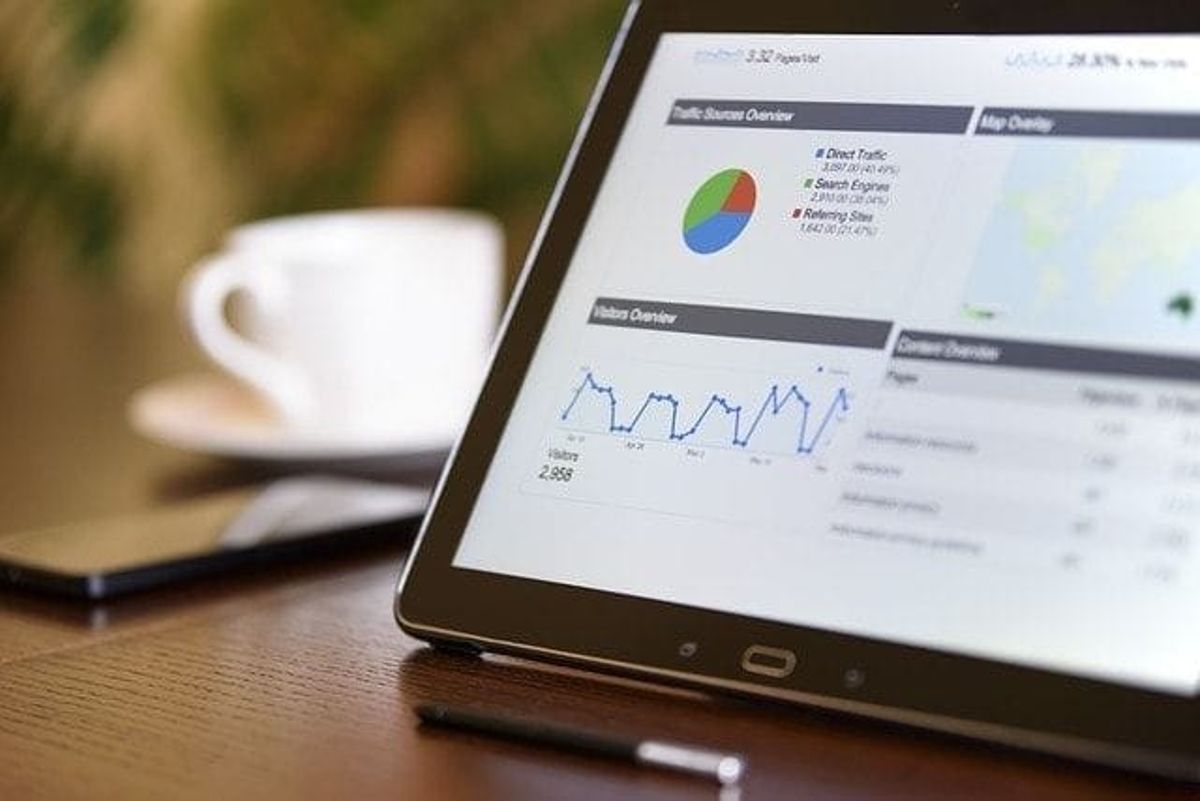Strategies for Hosting an Event for Marketing Success

Hosting an event can be a great way to promote a brand, product, or service in a highly engaging manner.
Quick Summary
Hosting events can significantly enhance brand awareness and community engagement. A strategic approach is vital for success, requiring clear goals and understanding the target audience. Engaging attendees through social media and employing event technology enriches their experience. Post-event, maintaining engagement and gathering feedback are crucial for improvement. Metrics like social media metrics and attendee behavior analysis help measure success and refine future strategies, ensuring eac
Events can offer a unique opportunity to connect directly with a target audience, create meaningful interactions, and leave a lasting impression.
The power of face-to-face interactions and shared experiences should not be underestimated. When done correctly, an event can be a valuable tool to generate leads, increase brand visibility, and foster community engagement.
Ready to Grow Your Business?
Get a custom strategy tailored to your goals.
However, to ensure an event's success, it is crucial to have a strategic approach to planning and execution. From identifying the right audience and setting clear goals to leveraging the latest technology and engaging with attendees before, during, and after the event, each aspect can play a role in making an event stand out.
Whether the event is in person, virtual, or a hybrid experience, thoughtful planning, and effective marketing efforts can be key to reaching the desired outcomes.
Remember, while this blog post offers some ideas, it's essential to conduct your own research to tailor these strategies to your business needs.
The Importance of Hosting an Event for Marketing Success
In an increasingly digital world, hosting an event for marketing purposes can still be a powerful way to connect, build brand awareness, and foster lasting relationships.
Whether an event is held in person or as a virtual event, creating a solid event marketing strategy can significantly impact the event's success.
Industry events, corporate events, and even more intimate networking opportunities can serve as valuable tools for gaining valuable insights and generating qualified leads.
To ensure that an event achieves its marketing goals, it is crucial to take a strategic approach.
This means understanding the target audience, creating engaging event experiences, and using the right event marketing strategies to effectively promote events.
Each of these elements can play an integral role in making an event successful and ensuring that the event marketing process is aligned with overall business objectives.
Defining the Event Marketing Strategy
Setting Clear Event Marketing Goals
The first step is often to define clear event marketing goals.
Is the event aiming to promote a new product, increase brand awareness, generate qualified leads, or engage with existing customers?
Knowing the goals of the event can help shape the overall event marketing plan and guide decision-making throughout the planning process.
Clear goals can also help measure the event's success after it concludes.
For instance, social media engagement, attendee satisfaction, or the number of qualified leads generated can all be important key performance indicators (KPIs) for evaluating how well an event achieved its intended objectives.
With clear and measurable goals, event organizers can ensure that each phase of the event aligns with its broader marketing strategy.
Identifying and Understanding the Audience
Identifying the audience is one of the most critical components of marketing an event. Understanding the target audiences, including their demographics, interests, and needs, can guide decisions regarding the event's theme, messaging, and promotional strategies.
Previous events can provide valuable insights into attendee behavior, preferences, and engagement levels, helping organizers design an event that meets audience expectations.
For example, personal events held for existing customers may need to focus on fostering loyalty and community, while events targeting new audiences may prioritize creating brand awareness.
Understanding the differences in target audiences can enable event planners to better tailor their content, promotions, and overall event experience, ensuring a successful event marketing outcome.
Crafting an Engaging Event Marketing Plan
Creating an Events Marketing Timeline
An events marketing timeline can be crucial for organizing a successful event.
Ready to Grow Your Business?
Get a custom strategy tailored to your goals.
Event organizers can break down the timeline into various phases of the event marketing process—pre-event, during the event, and post-event—to ensure all marketing efforts are executed effectively.
During the pre-event phase, marketers can focus on building anticipation for the event.
This may involve sharing event details, such as the event's schedule and keynote speakers, on social media platforms. Social media posts and email campaigns may also be used to engage audiences and encourage registration.
For virtual events, utilizing a virtual event platform with an easy-to-navigate event website can help potential attendees learn more and feel confident about attending.
Once the event begins, maintaining attendee engagement often becomes the focus. For in-person events, interactive activities like Q&A sessions or social media contests can help attendees feel more connected.
For hybrid events, the integration of virtual reality elements and an event app can foster participation from both physical attendees and those joining virtually.
Budgeting for Event Marketing Success

A successful event marketing plan often requires a well-thought-out budget that considers every aspect of the event.
Allocating resources for social media marketing, event branding, promotional materials, and event technology can help ensure that the event reaches its intended audience.
Event-specific hashtags, an event app, or other digital tools may also require budget considerations for maximum impact.
Another key element of budgeting for an event for marketing is resource allocation for partnerships and sponsorships.
Forming partnerships with relevant brands or securing sponsors can help promote events more effectively and extend the reach of marketing efforts.
In exchange, sponsors can be offered event branding opportunities such as logos on promotional materials or mentions during event announcements, making it mutually beneficial.
Engaging Attendees During the Event
Leveraging Social Media for Attendee Engagement
Social media can be great for engaging audiences during an event.
By creating event-specific hashtags and encouraging attendees to share their experiences, event organizers can foster a sense of community and generate organic content.
Different Social media platforms can also be used to share live updates, highlight key moments, and even conduct polls and Q&A sessions.
For both in-person and virtual events, sharing user-generated content from event attendees can be an effective way to boost attendee engagement.
This may include photos from the event, live videos, or testimonials. Engaging with attendees in this way can enhance the overall event experience and help ensure that attendees feel valued.
Incorporating Event Technology for Enhanced Experience

Event technology has become an essential element in creating a successful event marketing experience.
Ready to Grow Your Business?
Get a custom strategy tailored to your goals.
From virtual event platforms for virtual events to event apps that provide real-time updates and event details, technology can play a vital role in engaging attendees and keeping them informed.
Integrating event technology into the event marketing plan can help event organizers not only enhance attendee satisfaction but also gather valuable insights for future events.
Tools that collect data on attendee behavior, such as event apps, can provide organizers with feedback on what worked well and what areas need improvement, making the marketing strategies for the next event more effective.
Post-Event Marketing and Measuring Success
Post-Event Engagement Strategies
After the event, it can be essential to continue engaging attendees to keep the buzz alive and leave a lasting impression.
Sharing content from the event, such as photos, videos, and highlights, can help maintain momentum. Social media posts featuring key moments from the event, as well as follow-up emails thanking attendees for their participation, can foster positive relationships and encourage attendance at future events.
Gathering feedback from attendees is another crucial element of post-event marketing.
Conducting post-event surveys can provide valuable insights into attendee satisfaction, highlight areas for improvement, and inform the planning of future events.
Additionally, analyzing attendee behavior during the event, such as social media engagement and event app usage, can help event organizers identify what worked well and what could be improved.
Measuring Event Marketing Success
To understand how successful an event for marketing was, it is important to measure its outcomes.
KPIs, such as social media metrics, ticket sales, and attendee engagement, can give valuable data on the effectiveness of marketing campaigns and the event itself.
Tools like event apps and social media analytics can offer detailed insights into attendee behavior, helping event organizers make data-driven decisions for future events.
Qualitative feedback, such as comments from attendees, can also provide valuable insights into the event's success. Understanding both quantitative and qualitative feedback can help event organizers refine their event marketing strategies, ensuring that each subsequent event builds on the successes and lessons learned from previous events.
Conclusion: Building a Strong Event Marketing Plan

A successful event marketing plan often requires a combination of strategy, budget, and audience engagement.
By setting clear goals, understanding the target audience, and leveraging effective event marketing strategies, event planners can create an impactful event for marketing success.
The integration of social media, event technology, and post-event analysis can further enhance the overall event experience and drive future event success.
Whether hosting a corporate event, trade show, or intimate networking event, the key to event marketing success lies in flexibility, continuous improvement, and a strategic approach.
With careful planning and the right tools in place, an event marketing plan can contribute to achieving business objectives and creating meaningful connections with audiences.
The AMW team can assist with creating and executing an effective event marketing strategy to ensure event success.
Ready to Grow Your Business?
Get a custom strategy tailored to your goals.
Frequently Asked Questions
How long does it take to plan a successful marketing event?
A successful marketing event typically requires 3-6 months of planning, depending on its scale and complexity. The planning timeline should include 8-12 weeks for pre-event marketing, 4-6 weeks for venue booking and logistics, and 2-4 weeks for final preparations. Virtual events may require less lead time (6-8 weeks), while large-scale corporate events or industry conferences often need 6-12 months. Creating a detailed events marketing timeline with specific milestones ensures all promotional activities, from social media campaigns to attendee registration, are executed effectively.
What are the most important KPIs to measure event marketing success?
Key performance indicators for event marketing success include: attendee registration numbers, actual attendance rate (aim for 70-80% of registrations), lead generation quantity and quality, social media engagement metrics (hashtag usage, shares, mentions), post-event survey satisfaction scores, and return on investment (ROI). Track email open rates for event promotions, website traffic to event pages, and conversion rates from attendee to customer. For virtual events, also monitor session duration, chat participation, and platform engagement levels to gauge audience involvement.
How much should I budget for marketing an event?
Event marketing budgets typically range from 10-30% of your total event budget, depending on your goals and audience size. For a $10,000 event, allocate $1,000-$3,000 for marketing activities including social media advertising, email campaigns, promotional materials, and digital tools. Virtual events often require lower marketing costs (10-15% of budget) due to reduced venue and catering expenses. Consider allocating 40% for digital marketing, 30% for promotional materials and branding, 20% for technology tools like event apps, and 10% for partnerships or sponsorship activations.
What social media strategies work best for promoting business events?
Effective social media strategies for event promotion include creating event-specific hashtags, posting countdown content 4-6 weeks before the event, sharing speaker spotlights and behind-the-scenes content, and using LinkedIn for B2B events or Instagram for consumer-focused events. Post 3-5 times per week leading up to the event, create engaging video content featuring venue tours or speaker interviews, and encourage early registrants to share with their networks. Live-streaming key moments and user-generated content during the event amplifies reach and engagement significantly.
How do I choose between hosting an in-person, virtual, or hybrid event?
Choose in-person events for relationship building, hands-on product demonstrations, and when your target audience values networking opportunities. Virtual events work best for educational content, global audiences, and cost-effective lead generation. Hybrid events combine both benefits but require more complex planning and technology integration. Consider your audience preferences, budget constraints, geographic reach goals, and content type. In-person events typically generate higher engagement and stronger relationships, while virtual events offer broader reach and detailed analytics for measuring attendee behavior and interest levels.
What are the best practices for engaging attendees during a marketing event?
Effective attendee engagement strategies include interactive Q&A sessions, live polls, social media contests with event hashtags, networking breaks, and gamification elements through event apps. Create opportunities for user-generated content by providing photo opportunities and encouraging social sharing. For virtual events, use breakout rooms, chat features, and virtual networking sessions. Maintain energy with varied content formats, surprise giveaways, and real-time social media monitoring. Post-event, immediately follow up with thank-you messages, share event highlights, and provide additional resources to maintain momentum and relationship building.
How can I generate qualified leads from my marketing event?
Generate qualified leads by implementing strategic registration forms that capture relevant contact information and business details. Use lead scoring based on attendee behavior during sessions, booth visits, and content downloads. Offer valuable incentives like exclusive content, product demos, or consultations in exchange for contact information. Train staff to identify and engage high-potential prospects through meaningful conversations. Follow up within 24-48 hours post-event with personalized messages, relevant resources, and clear next steps. Use event apps to track attendee interests and engagement levels for more targeted follow-up communications.
Related Resources
Calculators
Pricing Guides
Key Terms
Optimization of individual web page elements including content, HTML source code, and meta tags to rank higher in search results.
Keyword DifficultyA metric estimating how hard it would be to rank on the first page of search results for a specific keyword.
Content DecayThe gradual decline in organic traffic and rankings that content experiences over time as it becomes outdated or outranked.
Brand SalienceThe degree to which your brand comes to mind quickly and easily when customers think about your product category.
Answer Engine OptimizationOptimizing content for AI answer engines and conversational search interfaces.
Related Articles

Event Marketing: Strategies for Successful Marketing Events
Event marketing stands out as a tool for engaging audiences and promoting brands. Imagine hosting an event that captivates your audience and drives significant growth for your brand. Event marke

Events Marketing Plan: Creating an Event Strategy
Planning a successful event often requires a well-thought-out strategy that can significantly impact its outcome. Whether you're organizing a conference, a product launch, or a community event, an

10 Steps on How to Develop a Marketing Plan for Your Next Event
Events are a mix of fun and challenges. Whether it's a corporate seminar, product launch, or a big celebration, the key to a successful event is in the planning and execution.